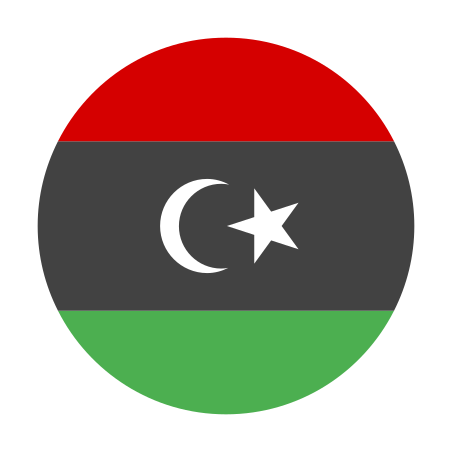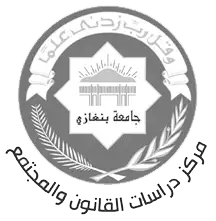Justice seeking and access to justice in Libya: the families of victims of the Abu Salim massacre
The Abu Salim prison massacre of 1996 is arguably the most heinous act of state repression in Libya's living memory. Some 1270 prisoners were killed and the events were denied and obscured by state authorities. Supreme Court Judge Ali Abu Raas studied the justice journeys of three family members of the victims of the Abu Salim-prison massacre.
After the Italian colonial concentration camps, probably the single most heinous act of state repression in Libya’s history was the 1996 Abu Salim prison massacre in which some 1270 prisoners were killed. The Abu Salim-case was a milestone in the history of Libya and its judiciary. The massacre took place more than a quarter century ago and yet the page has not been turned yet, reflecting the inability of Libya’s legal system to provide the minimum guarantees associated with the idea of justice – particularly in transitional justice cases.
Many scholarly and literary authors have written about the Abu Salim-massacre, and the troubled pursuits of justice in response. This case study adds to that literature, by focusing on the central question, ‘Why was justice not available for the victims of Abu Salim?’. It describes in great detail the justice journeys of three families who lost a relative in the Abu Salim-massacre. This summary focuses on one of these cases, that of Mrs Wedad.
In April 1986, Mrs Wedad and her husband Ahmed lived in Tripoli when her husband did not come home. Wedad knew neither who had arrested her husband, nor why they had done so. The arrest meant a crisis: Wedad was three months pregnant with their only child, and fully dependent on Ahmed’s salary. It was only in 1988 that she learned from some released political prisoners that her husband was in prison. When her husband’s salary stopped coming, she had to secure an income for her and the child. But her applications were rejected, because her husband was a political detainee. When she finally managed to find a job, it was one based on a fixed contract resulting in depriving her from promotion and fixing her salary throughout her career.
Wedad was first allowed to visit Ahmed in prison in April 1988. She continued to visit him every month, except for when she was banned from coming. The last visit Wedad brought her husband was in April 1996, two months before the massacre. She heard rumours about incidents in Abu Salim-prison at the time but did not know Ahmed’s fate.
Wedad continued her monthly visits even though she was not able to meet with him. She would bring supplies and clothes to help Ahmed endure prison, handing these over to prison guards who pledged to give them to her husband. These visits and those gifts were a glimmer of hope for her; hope that he was alive. Wedad believed that Ahmed was alive still, because she knew that he did not belong to the Islamic current targeted in the incident.
This belief that Ahmed was alive, was reinforced by state authorities’ behaviour after 1996. In those years, a People’s Court sentenced him in 2000 to Ahmed imprisonment. An unknown person gave Wedad a letter from Ahmed and took belongings from her that he pledged to pass on to her husband. In 2009, an intelligence officer called her brother-in-law asking him to prepare the family booklet in preparation for Ahmed’s release. The same happened in 2011. And when a member of Amnesty International asked to visit Ahmed, he was informed that Ahmed was imprisoned in Benghazi. All of this led Wedad and her family to believe that her husband had not been killed in the massacre.
Yet Wedad’s hopes evaporated after the February 2011 Revolution. A former inmate who had known her husband in Abu Salim prison, told her that Ahmed had been summoned by the prison guards on the morning of the massacre. Like other prisoners, Ahmed had been taken to the prison courtyard. Shortly after, the former inmate had heard a barrage of bullets. It appears probable that Ahmed was killed then, but to this hour Wedad has not been informed officially of her husband’s death.
Wedad and her family tried many things to find out Ahmed’s fate. Wedad contacted the Amnesty International representative for help, but with no result. Their son submitted a memorandum to Saif al-Islam al-Gaddafi requesting his fathers’ release – to no avail. Wedad contacted the Civil Status Authority to request that the family’s booklet was changed and she was appointed as the head of the family, hut they refused on the pretext that the head of the family, her husband Ahmed, was still alive officially. This prevented Wedad and her son from obtaining a national number, because this is only for those to whom the booklets of a new family were disbursed. When her son got married, the Civil Status Authority did not give him a family booklet because he did not have a national number. The Ministry of Martyrs refused to give her the grant prescribed for the families of the martyrs but fortunately a Good Samaritan intervened and persuaded the officials to allow that. Lastly, Wedad filed a lawsuit to prove her husband’s death before the South Tripoli Court of First Instance, but this ruled that it had no jurisdiction.
The horror of her husband’s disappearance was followed by a prolonged series of knock-on effects. Since 1986, she has been deprived of her husband, and she has lived in uncertainty about his fate. Although by now she believes that Ahmed was murdered, the competent authorities have neither confirmed this nor given her a death certificate. And so Wedad remains in the eyes of the law a wife – not a widow – and she cannot claim retribution, blood money, compensation, or any of the rights of the recognised victims’ families. Wedad and her son have been unable to get a national number, rendering their citizenship incomplete. Her son has been denied his inheritance from his father’s family, as this is conditional on proving the death itself – and its date – which are still shrouded in mystery.
The most prominent obstacles Wedad faced on her justice journey, were the difficulty of proving the former regime’s crimes. The regime was keen to obliterate any traces of its crimes, by hiding and burning bodies, and disappearing the prison archive. All this disabled Wedad from proving her husband’s fate. The court refused to hear Wedad’s case on the spurious grounds that the court had no jurisdiction. Underlying their reticence, was the court’s reluctance to burn its fingers on a heavily politicised case like the Abu Salim-massacre.
In sum, Wedad’s tragedy is that she is forced to seek justice from the same Libyan state which has arrested her husband in 1986, likely murdered him in 1996, and for over twenty-five years deprived her and her son of their rights.
This summary was published in Suliman Ibrahim, Bruno Braak and Jan Michiel Otto (2022) 'The Long and Winding Road: Justice seeking and access to justice in Libya', Leiden/Benghazi: Van Vollenhoven Institute/Benghazi Centre for Law and Society Studies.




